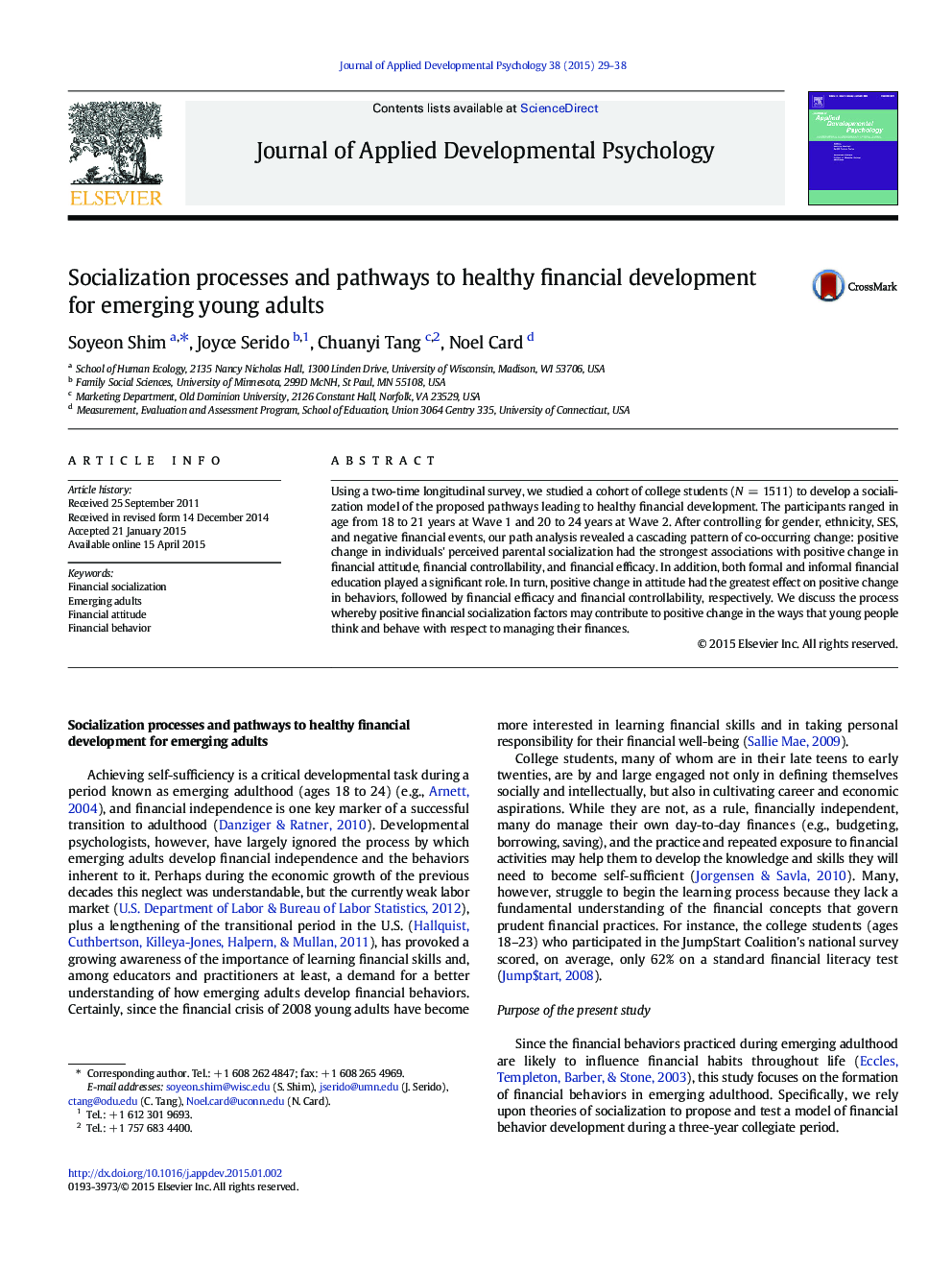| Article ID | Journal | Published Year | Pages | File Type |
|---|---|---|---|---|
| 359700 | Journal of Applied Developmental Psychology | 2015 | 10 Pages |
•We used a two-time longitudinal data to study financial socialization among young adults.•We developed a socialization model of pathways to health financial development.•Parents exerted the most influence on students' changes in financial attitude and behavior.•Changes in financial attitudes had the most direct impact on changes in behavior.
Using a two-time longitudinal survey, we studied a cohort of college students (N = 1511) to develop a socialization model of the proposed pathways leading to healthy financial development. The participants ranged in age from 18 to 21 years at Wave 1 and 20 to 24 years at Wave 2. After controlling for gender, ethnicity, SES, and negative financial events, our path analysis revealed a cascading pattern of co-occurring change: positive change in individuals' perceived parental socialization had the strongest associations with positive change in financial attitude, financial controllability, and financial efficacy. In addition, both formal and informal financial education played a significant role. In turn, positive change in attitude had the greatest effect on positive change in behaviors, followed by financial efficacy and financial controllability, respectively. We discuss the process whereby positive financial socialization factors may contribute to positive change in the ways that young people think and behave with respect to managing their finances.
